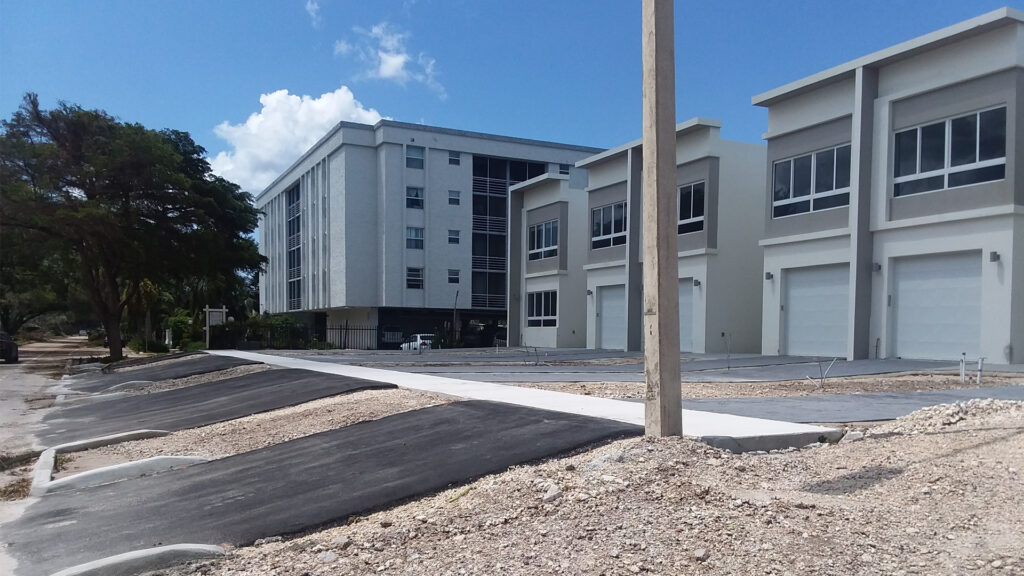By the Miami Herald Editorial Board
Floridians believe in climate change more than other Americans.
Makes sense. This is the state where we had historic, destructive rainfall in Broward County last spring, record heat this summer and the continuing worry of fiercer hurricanes this fall, along with endlessly rising homeowner insurance costs.

Wading through floodwaters, relying on pumps to keep us dry, watching houses being built at higher elevations — as is routinely happening in South Florida now — all have a way of bringing climate change into sharp focus. It’s hard to avoid that here, especially when the waters lap at your doorstep.
A study by Florida Atlantic University’s Center for Environmental Studies in September found that 90% of Floridians say climate change is actually happening right now. And, as the Sun Sentinel wrote in a recent story, that’s a greater percentage than Americans overall, if recent studies are a guide.
For example, a survey done by the Associated Press and the University of Chicago showed that, while most Americans — about 90% — have experienced extreme weather events in the last five years, about three-quarters believe that’s due at least in part to climate change. About 74% say climate change is under way. (They aren’t always in agreement on the cause — about 57% said it is man-made.)
The FAU findings also reinforce a trend seen in previous surveys done by the university. Most Floridians see climate change as something that’s no longer in question.
It wasn’t that long ago that then-Florida Gov. Rick Scott’s administration made “climate change” and “global warming” terms to avoid at all costs in state government. Back then, in 2014 and maybe earlier, Scott — who is now Florida’s junior U.S. senator — apparently instructed his staff to find other words, like using “nuisance flooding” instead of sea-level rise. The whole thing became so silly it was a punchline for late-night comics, and deservedly so.
(The people in Fort Lauderdale who got a whopping 26 inches of rain in one day in April might have something to say about “nuisance flooding” now.)
Current Gov. Ron DeSantis made strides early in his first term by actually uttering the words at an April 2019 event in West Palm Beach. “This idea of — quote — ‘climate change’ has become politicized,” he said. “My environmental policy is just to try to do things that benefit Floridians.”
When he was running for governor in 2018, he even told the editorial board at the Florida Times-Union in Jacksonville that “humans contribute to what goes on around us” when it comes to climate change, comments also reported by the New York Times.
“The resiliency and some of the sea-level rise, we have to deal with that,” he added.
Of course now, as a GOP presidential candidate, there’s a different DeSantis. He’s busy pushing fossil fuels on the campaign trail. He refused to hold up his hand on the GOP debate stage when the candidates were asked if they thought human behavior is causing climate change, saying, “We’re not schoolchildren.”
In Florida, he’s giving tax breaks to people who buy gas stoves — a culture war flash point because the stoves’ emissions contribute to climate change — and rejecting $350 million in federal dollars for energy efficiency alternatives. Maybe he’s reverted to the old Republican stance that climate change is caused by nature and not people, despite years of research that says the opposite.
Floridians, meanwhile, are on the front lines of climate change. Unlike their leaders, they don’t have the luxury of ducking reality. But DeSantis, who remains our governor, seems to be living in another state entirely. It’s not New Hampshire or Iowa or South Carolina, though he spends plenty of time here lately. No, he’s living in that favorite refuge of politicians, the state of denial.
This opinion piece was originally published by the Miami Herald, which is a media partner of The Invading Sea. If you are interested in submitting an opinion piece to The Invading Sea, email Editor Nathan Crabbe at ncrabbe@fau.edu. Sign up for The Invading Sea newsletter by visiting here.



